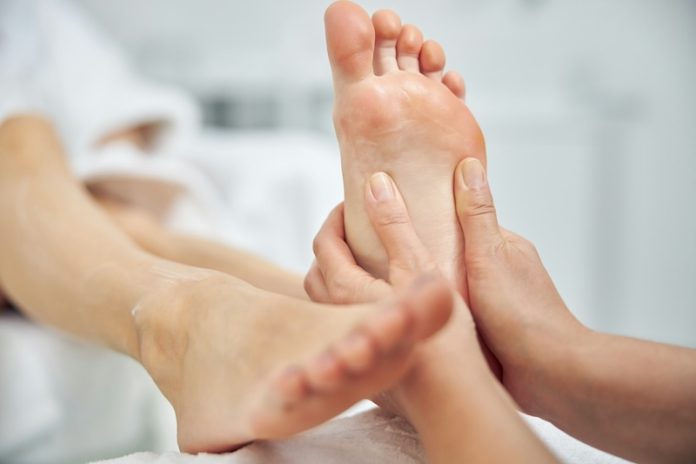
A new study has found that nerve damage in the hands and feet, known as neuropathy, is much more common than many people realize—and often goes undiagnosed.
The research, published on May 8, 2024, in Neurology, the journal of the American Academy of Neurology, focused on people in Flint, Michigan, and revealed that nearly three out of four participants had neuropathy, but most had never been told they had it.
Neuropathy happens when nerves are damaged, often in the feet or hands. This can cause numbness, tingling, or pain that feels like sharp shocks or pins and needles. Over time, this condition can become more serious, leading to falls, infections, or even amputations if left untreated.
People with neuropathy also tend to have a lower quality of life and are more likely to experience depression and die earlier than others, even if they have other health conditions.
The study was led by Dr. Melissa Elafros from the University of Michigan. Her team worked with 169 adults at a medical clinic that mostly serves low-income patients. The average age of the group was 58, and nearly 70% were Black. About half of the participants had diabetes, a known cause of neuropathy.
Two-thirds also had metabolic syndrome, a cluster of health problems that includes high blood pressure, high blood sugar, unhealthy cholesterol levels, and belly fat. Metabolic syndrome is also linked to nerve damage.
All the participants were checked for a specific type of neuropathy called distal symmetric polyneuropathy, which usually starts in the feet. Researchers also gathered information about each person’s health conditions and lifestyle factors.
The results were eye-opening. A full 73% of participants were found to have neuropathy, and 75% of them didn’t know it. Of those with nerve damage, nearly 60% were in pain. This means that a lot of people are living with painful and possibly dangerous nerve damage without realizing it.
The link between neuropathy and metabolic syndrome was especially strong. After adjusting for age and other health conditions, the researchers found that people with metabolic syndrome were more than four times more likely to have neuropathy than those without it. This makes managing weight, blood sugar, cholesterol, and blood pressure even more important.
The researchers also explored how race and income might affect the risk of nerve damage. Surprisingly, low income was not linked to higher rates of neuropathy in this group. And contrary to what might be expected, Black participants actually had a lower risk of neuropathy than others.
Among those with neuropathy, 60% were Black, compared to 91% of those without nerve damage. This part of the study raises new questions that need further investigation.
Dr. Elafros said that the number of people with undiagnosed nerve damage in the study was “extraordinarily high” and pointed out how important it is to find better ways to diagnose and treat neuropathy. Many people at risk aren’t getting tested or treated early, which allows the condition to get worse.
One downside of the study is that it only looked at one point in time. It didn’t follow people over months or years to see how neuropathy developed or progressed. It also didn’t explore why some people aren’t managing their health conditions that lead to nerve damage—such as diabetes or high blood pressure.
In summary, this study shows a serious problem: many people are walking around with nerve damage and don’t know it. Most of them could be helped if their condition were diagnosed earlier. Better screening in clinics, especially for people with diabetes or metabolic syndrome, could make a big difference.
Education about nerve damage and the risks linked to obesity, high blood sugar, and poor cholesterol is also needed to help prevent this silent and painful condition from going unnoticed.
If you care about diabetes, please read studies about diabetes and vitamin B12, and the right diet for people with type 2 diabetes.
For more health information, please see recent studies about how to eat smart with diabetes, and turmeric and vitamin D: a duo for blood pressure control in diabetic patients.
The research findings can be found in Neurology.
Copyright © 2025 Knowridge Science Report. All rights reserved.



